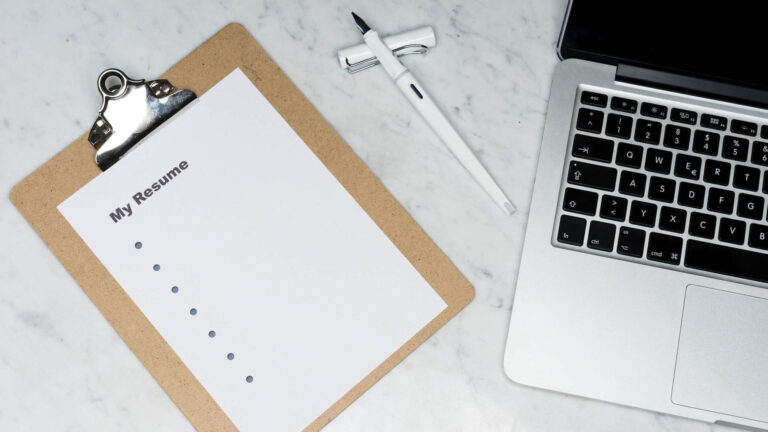The second interview is an essential step towards your dream job. It’s an opportunity to connect with your potential employer and showcase your skills, experience, and personality in a more comprehensive way than in the initial meeting. The interviewer will have a better understanding of your qualifications, and you can get a more accurate picture of the company culture, salary expectations and benefits. The second round of interviews is the employer’s chance to confirm their initial impressions, assess your fit within the company culture, and dive deeper into specific questions that they might have about your qualifications.
How this Article Will Help You Ace Your Second Interview
Competing for a job can be nerve-wracking, especially if you don’t know what to expect. That’s why we’ve created this guide to help you prepare for your second interview successfully. From getting to know the company culture to mastering common interview questions, this article provides practical tips and actionable advice on how to improve your interview performance.
Preparing for Your Second Interview
Congratulations on being invited for a second interview! This is a great opportunity to showcase your skills and experience and get one step closer to landing your dream job. To ensure that you ace your second interview, there are four key steps that you should follow:
A. Review the Company and Job Posting
Before going for your second interview, make sure that you take some time to review the company and job posting again. Go through the job description and requirements in detail and make a note of any areas where you feel that you can add value to the organization. Also, research the company’s mission statement, values, and culture to get a better understanding of what they are looking for in a candidate.
B. Research Recent News and Developments
It’s important to stay up-to-date with the latest news and developments related to the company and the industry they operate in. Look for recent press releases, news articles, and social media updates to get a better understanding of the company’s current activities and initiatives. This information can also help you tailor your responses to interview questions and showcase your knowledge of the company and industry.
C. Prepare a List of Questions for the Interviewer
One of the best ways to demonstrate your interest in the role and the company is by preparing thoughtful and relevant questions for the interviewer. Make a list of questions based on your research and the job posting, such as the company’s long-term goals, current challenges, and opportunities for growth. These questions can also help you gain a better understanding of the role and how you can contribute to the organization.


D. Conduct a Mock Second Interview
Finally, it’s a good idea to conduct a mock second interview with a friend or mentor to practice your responses to potential questions. This will help you feel more confident and prepared for the actual interview. Make sure to review common interview questions and practice how you will explain your skills and experience in a way that aligns with the job requirements.
By following these steps, you’ll increase your chances of acing your second interview and landing the job that you want. Good luck!
Understanding Your Interviewer’s Perspective
When you’re approaching your second interview, it’s essential to take some time to understand your interviewer’s perspective. Doing so will help you anticipate their questions, concerns, and priorities, increasing your chances of impressing them and landing the job. Here are three critical things to keep in mind:
A. What the Interviewer Wants to Know
The first thing to understand is what the interviewer wants to know. Generally, they’ll be assessing three essential things: your skills, your fit, and your motivation. They’ll want to know what you can bring to the company, how you might fit into the team, and what motivates you to do your best work.
To impress the interviewer, you’ll need to be prepared to demonstrate your expertise in the required skills, explain how you can contribute to the team, and share your professional goals and motivations.
B. Why Interviewers Ask Tricky Questions
Second, it’s critical to understand why interviewers ask tricky questions. These questions are designed to test your critical thinking, problem-solving abilities, and personality traits. They may be challenging, irrelevant or uncomfortable; however, it’s essential to stay composed and answer them to the best of your ability.
The key here is to prepare for tricky questions in advance. Practice responding to different types of questions, from behavioral to situational, and anticipate any potential red flags with your responses.
C. How to Address Concerns from the First Interview
Finally, it’s essential to address any concerns that the interviewer may have from your first interview. Did you lack certain skills? Were you unclear on certain points? Did you seem uninterested or unprepared?
Make sure you take the time to reflect on your first interview and identify any areas where you may have fallen short. Then, prepare to address those concerns head-on in your second interview. Be honest about any skills you may lack and explain how you plan to acquire them. Clarify any points you were unclear on, and prepare to demonstrate your knowledge on the subject.
To ace your second interview, it’s crucial to understand your interviewer’s perspective. Prepare to demonstrate your skills, handle tricky questions with confidence, and be upfront about any concerns from the first interview. By doing so, you’ll be well on your way to landing the job!
Answering Common Second Interview Questions
During the second interview, the interviewer’s aim is to know you as a person and understand your suitability for the position. The interviewer will likely ask specific questions about your experience and capabilities to know if you are a proper fit for the position. Here are the most common second interview questions you should be prepared to answer:
A. Tell Me About Yourself


This question is a chance to make a strong first impression. You should provide a brief introduction that emphasizes your relevant experience and expertise. Keep it succinct and avoid getting too personal. The interviewer wants to know about your work experience, your accomplishments, and how you might fit into the company’s dynamic. Highlight your relevant accomplishments and how they’ll help you contribute to the company’s goals.
B. Why Do You Want This Job?
This question requires you to do your research on the company and understand the position’s requirements. You should explain how the job matches your passions, expertise, and aspirations. What attracts you to the company’s culture, products, or mission? What sets this job apart from other opportunities? State your interest in the company positively, emphasizing your enthusiasm for the position.
C. What Are Your Strengths and Weaknesses?
This is a classic second interview question that can throw people off track. This question requires you to evaluate yourself critically and truthfully. Your strengths should show how well-suited you are for the position, while your weaknesses should address areas where you can improve. Be honest and avoid generic responses. Provide specific examples of your strengths and how you can leverage them for the job. Let the interviewer know about your self-improvement plans and how you address your weaknesses.
D. What Is Your Management Style?
The interviewer wants to know how you lead and work with teams. This question helps the interviewer assess how you can handle responsibilities and how well you’ll fit into the company’s leadership structure. Be honest about your approach, and highlight specific skills such as conflict resolution, delegation, and coaching. If you have experience working in leadership roles, provide examples to illustrate your management style.
E. How Do You Handle Conflict?
This question is essential for any leadership position. Conflict resolution skills are critical, especially in high-stress work environments. Be transparent about your approach and showcase examples of how you de-escalated situations. Emphasize listening, empathy, and compromise. If you have experience in resolving conflicts, provide examples to demonstrate your methods.
F. What Are Your Salary Expectations?
This question can be tricky, but it’s essential to be prepared. Research the industry and the company’s salaries before the interview. You should provide a reasonable compensation range based on your experience and responsibilities. Be flexible in your expectations and consider other factors like benefits or stock options. Avoid discussing salary until after you receive a job offer.
In Conclusion
The second interview is an excellent chance for you to showcase your expertise and prove why you’re the best candidate for the position.
Responding to Behavioral Interview Questions
Behavioral interview questions are becoming increasingly popular among hiring managers. These questions are designed to help managers understand how a candidate will behave and react in certain situations, based on past experiences. These questions are often open-ended and require candidates to provide specific examples of past behaviors and actions.
A. What Are Behavioral Questions?
Behavioral questions are designed to help employers determine how a candidate will react in certain situations based on past experiences. These questions are often phrased in the form of, “Tell me about a time when…,” or “Give me an example of when you…”. The purpose of these questions is to gain insight into the candidate’s behavior and decision-making process.
B. The STAR Method: How to Craft Responses
One effective way to respond to behavioral interview questions is by using the STAR method. The STAR method stands for Situation, Task, Action, and Result. This approach helps candidates to structure their responses and provide specific examples of their behavior.
When answering a behavioral question using the STAR method, first describe the situation you were in. Next, explain the task or problem you were trying to solve. Then, describe the action you took and how you solved the problem. Finally, discuss the results of your actions and any impact they had on the organization.
C. Common Behavioral Interview Questions and Example Responses
- Tell me about a time when you had to meet a tight deadline.
- Situation: While working for XYZ company, we had a project that needed to be completed within three days.
- Task: My role was to manage the team and ensure that we met the deadline.
- Action: I created a detailed timeline and delegate tasks to the team members based on their strengths.
- Result: We were able to submit the project on time and received positive feedback from the client.
- Give me an example of a time when you had to resolve a conflict with a coworker.
- Situation: One of my coworkers and I had a disagreement about a project we were working on.
- Task: We needed to come up with a solution that satisfied both parties.
- Action: I scheduled a meeting to discuss the issue, and we were able to come up with a compromise that satisfied both of us.
- Result: We continued working together effectively, and the project was completed on time.
- Describe a time when you had to make a difficult decision.
- Situation: I was managing a team, and we were faced with a difficult decision regarding a project deadline.
- Task: We needed to determine whether to push the deadline or to ask for more resources to meet the deadline.
- Action: I discussed the situation with my team, and we decided to ask for more resources.
- Result: The resources were allocated, and we were able to meet the deadline and deliver a high-quality project.
Demonstrating Your Skills and Competencies
When it comes to acing your second interview, it’s important to not only discuss your skills and competencies, but also provide specific and relevant examples of how you have demonstrated them in the past. This section will cover three key areas to focus on when demonstrating your skills and competencies: discussing your achievements, providing specific and relevant examples, and demonstrating your knowledge and expertise.
A. Discussing Your Achievements
One of the best ways to demonstrate your skills and competencies is by discussing your achievements. This allows you to showcase your abilities in a tangible way and provides concrete evidence that you have the skills and knowledge to excel in the position you’re interviewing for. When discussing your achievements, it’s important to focus on results rather than just tasks. Talk about the impact you had on the company or project, and how your contributions were instrumental in achieving success.
B. Providing Specific and Relevant Examples
In addition to discussing your achievements, it’s also important to provide specific and relevant examples of how you have demonstrated your skills and competencies in the past. This could include specific projects you’ve worked on, challenges you’ve faced and overcome, or opportunities you’ve capitalized on. Be sure to tailor your examples to the specific skills and competencies required for the position, and focus on those areas where you can offer the most value.
C. Demonstrating Your Knowledge and Expertise
Finally, it’s important to demonstrate your knowledge and expertise in the field. This might include discussing industry trends, sharing insights into best practices or emerging technologies, or simply showcasing your passion and enthusiasm for your work. Consider bringing in relevant articles or studies to discuss, and be prepared to answer technical or complex questions related to your field.
By focusing on discussing your achievements, providing specific and relevant examples, and demonstrating your knowledge and expertise, you’ll be well on your way to acing your second interview. Remember, always be confident and clear in your responses, and strive to showcase your abilities in a way that is tailored to the specific needs and requirements of the position.
Showing Your Fit with the Company Culture
As you progress through the hiring process, it’s important to not only showcase your impressive skills and experience, but also your fit with the company culture. Many employers place a high value on culture fit, as it often leads to successful and fulfilling relationships between employees and the company.
To demonstrate your fit with the company culture, you must first understand what the culture is. Look at the company’s website, social media presence, and any materials they provide during the interview process. You want to get a sense of the company’s values, mission, and overall vibe.
Once you have an understanding of the company culture, reflect on your own values and priorities. What motivates you? What type of work environment brings out your best work? Is work-life balance important to you? By being clear about what you’re looking for, you can articulate your fit with the company culture during the interview.
During the interview, be prepared to ask questions that will help you better understand the company culture. Examples of questions could include:
- How does the company foster collaboration and teamwork?
- Can you tell me about any company-wide initiatives or events that reflect the company culture?
- How does management approach feedback and performance evaluations?
- How does the company support employee growth and development?
As you answer questions during the interview, be mindful of how you can demonstrate your fit with the company culture. For example, if the company values a collaborative work environment, highlight any experiences you’ve had working on team projects or promoting teamwork in previous jobs. Or, if the company values creativity and innovation, discuss examples of how you’ve brought fresh ideas to previous projects.
Showing your fit with the company culture is an important part of acing your second interview. By understanding the culture, reflecting on your own values, and embodying the company’s values during the interview, you’ll increase your chances of landing the job and thriving in your new role.
Asking Intelligent Questions
As you prepare for your second interview, you want to make sure you ask intelligent questions that show you’re interested and invested in the company’s success. Asking the right questions can help you gain a better understanding of the job, company culture, and hiring process, which can ultimately help you stand out from other candidates.
A. Why You Should Ask Questions
First, it’s important to understand why you should ask questions during your second interview. One of the biggest reasons is because it shows you’re serious about the position and genuinely interested in the company. Asking thoughtful questions can also help you:
- Learn more about the job responsibilities and expectations
- Understand the company’s culture and values
- Gain insight into what the hiring process will be like
- Demonstrate your critical thinking skills and problem-solving abilities
B. Questions to Ask About the Role
During your second interview, you’ll likely have the opportunity to meet with the hiring manager or members of the team you’ll be working with. This is a great time to ask specific questions about the role to help you better understand what will be expected of you. Some questions to consider asking include:
- What are the primary responsibilities of this position?
- How does this role fit into the overall goals of the company?
- What are the biggest challenges associated with this role?
- What are the key skills and qualities needed to excel in this position?
C. Questions to Ask About the Company Culture
Understanding a company’s culture is important to ensure you will be happy and successful in your new role. During your second interview, you should ask questions that help you get a sense of the company’s values, work environment, and overall atmosphere. Some questions to consider asking include:
- What’s the company culture like here?
- What type of management style can I expect?
- How does the company encourage employee growth and development?
- What’s the company’s approach to work-life balance?
D. Questions to Ask About the Hiring Process
It’s also important to understand what the hiring process will be like and what you can expect moving forward. During your second interview, ask questions that help you gain insight into the hiring process and what the next steps will be. Some questions to consider asking include:
- What’s the timeline for the hiring process?
- How many other candidates are being considered for this position?
- What are the next steps in the process if I’m offered the job?
- Is there anything else I can provide to help support my candidacy?
Asking intelligent questions during your second interview can help you stand out from other candidates and show the hiring team that you’re invested in the company’s success. Use these tips to come up with thoughtful questions that help you gain a deeper understanding of the job, company culture, and hiring process.
Handling Difficult or Unusual Questions
As you prepare for your second interview, it’s essential to expect difficult or unusual questions that may catch you off guard. In this section, we’ll explore different types of challenging questions and provide advice on how to handle them.
A. What Constitutes a Difficult Question?
A challenging question can take various forms, but it usually requires a thoughtful and nuanced response. For instance, the interviewer may ask you to discuss a difficult situation you faced at work and how you resolved it. Alternatively, they may inquire about your weaknesses or why you left your previous job. These questions can be challenging because they require you to be honest while framing your answers positively.
B. How to Respond to Illegal Questions
During your interview, you may encounter illegal questions that seek information about your age, gender, religion, or marital status. It’s crucial to understand that you are not obligated to answer these questions, and doing so may compromise your rights.
In such cases, turn the question around by stating that the question seems inappropriate and ask for a clarifying question that’s relevant to the position. If the interviewer continues to ask the same question or insists on answering it, you may want to consider if the company is the right fit for you.
C. How to Answer Brainteasers and Puzzles
Brainteasers and puzzles are common in many job interviews, especially for positions requiring problem-solving skills. These questions can be challenging, but they’re meant to test your ability to think creatively and analytically.
When faced with a brainteaser, take a moment to understand the problem and clarify any questions you may have. Then, break the problem down into smaller parts and work through each part methodically. Remember to think out loud, so the interviewer can follow your thought process.
D. Handling Questions About Gaps in Your Experience
If you have gaps in your employment history, there’s a likelihood that the interviewer will ask you to explain them. The key to answering this question is honesty and framing your gaps positively.
Start by explaining the reason for your break, such as taking time off to care for a sick relative, personal development, or traveling. Emphasize any skills or experiences you gained during that period, such as volunteering or taking a course. Finally, highlight how you plan to use those skills and experiences to benefit the company.
Difficult or unusual questions are an opportunity to showcase your problem-solving skills and ability to think on your feet. By preparing beforehand and adopting a positive attitude, you’ll ace your second interview and land your dream job.
Following Up After the Second Interview
After a successful second interview, it’s important to follow up with the hiring manager to express your continued interest in the position and thank them for their time. Following up can leave a positive impression on the hiring manager and increase your chances of landing the job.
A. The Importance of Following Up
Following up after the second interview is crucial for a few reasons. Firstly, it shows the hiring manager that you’re genuinely interested in the position and the company. It also gives you another opportunity to build rapport with the hiring manager and leave a positive impression. Additionally, it shows that you’re proactive and professional, which are qualities that many employers look for in candidates.
B. What to Include in Your Follow-Up Email
Your follow-up email should be concise and professional. Here’s what to include:
- Start by expressing your gratitude for the opportunity to interview for the position.
- Reiterate your interest in the role and the company.
- Highlight any relevant skills or experience that make you a good fit for the position.
- Mention something that you discussed during the interview to demonstrate that you were engaged and listened closely.
- Close by thanking the hiring manager once again for their time and consideration.
C. Deciding When and How to Follow Up
When it comes to following up after the second interview, timing is important. You don’t want to be too aggressive or too passive. Here are some tips on deciding when and how to follow up:
- Send your follow-up email within 24 hours of the interview while the conversation is fresh in their mind.
- If the hiring manager gave you a specific timeline for their decision-making process, follow up after that date.
- If they didn’t give you a timeline, it’s acceptable to follow up after one to two weeks.
- If you don’t hear back after your initial follow-up, you can send a second email or make a phone call to check in.
When following up, make sure to be polite and respectful of the hiring manager’s time. If they’re not responsive, it’s best to move on and continue your job search.
Following up after the second interview is an important step in the job search process. By expressing your continued interest and gratitude, you can leave a positive impression on the hiring manager and increase your chances of landing the job. Remember to be professional, concise, and timely in your follow-up communications.
Related Articles
- How to Make a Resume: Complete Guide 2023 Edition
- Legal Clerk: Job Description, Salary, and Skills for 2023
- How to Decline a Job Interview With a Letter in 2023
- Hard Skills: Definition and List of Best Skills [Edition]
- Acing Interviews with the STAR Method: Best Examples




